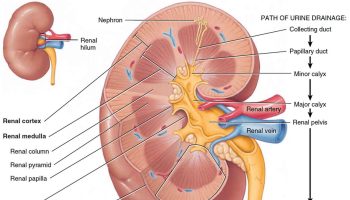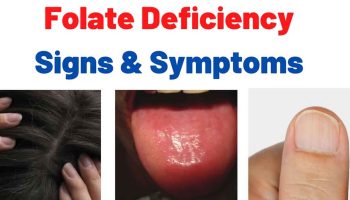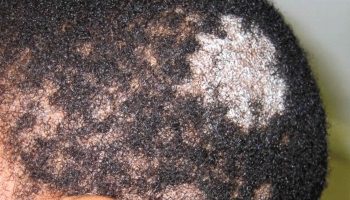Contents
What is ADHD
Attention deficit hyperactivity disorder (ADHD) is a mental disorder in which children are especially inattentive, impulsive or hyperactive 1.
ADHD is a disorder that has three different types of symptoms 2:
- Inattentive: Difficulty paying attention or focusing on certain tasks and are easily distracted.
- Hyperactive: Being overactive (or hyperactive) describes children who are restless or constantly fidgeting – for instance, they may not be able to sit still during school lessons, and get up and walk around the classroom a lot instead.
- Impulsive: Acting on impulse (without thinking) children act in a way that is extremely rash, inconsiderate, careless or impatient for their age.
Attention deficit hyperactivity disorder (ADHD) is not just a childhood disorder 3. Although the symptoms of ADHD begin in childhood, ADHD can continue through adolescence and adulthood. Even though hyperactivity tends to improve as a child becomes a teen, problems with inattention, disorganization, and poor impulse control often continue through the teen years and into adulthood.
Attention deficit and hyperactivity disorders are very common. Surveys estimate that as many as 9 percent of American children and 4 percent of adults have ADHD 4. About 4 to 5 out of 100 children are diagnosed with ADHD in Germany 1. However, one representative study on the prevalence of ADHD in Germany shows that only 1 to 2 out of 100 children meet the actual criteria for diagnosis, and that it is twice as common in boys as in girls. This implies that some children are wrongly diagnosed with ADHD 1. But there are also some children who have ADHD and are never diagnosed with it. It is not known exactly how often this happens. Children may first develop ADHD symptoms at an early age (between 3 and 6 years old). However, ADHD is most often found and treated in elementary school (between 7 and 9 years old) 5.
Children or teens with ADHD may:
- Get distracted easily and forget things often
- Switch too quickly from one activity to the next
- Have trouble following directions
- Daydream too much
- Have trouble finishing tasks like homework or chores
- Lose toys, books, school supplies, pencils, books, tools, wallets, keys, paperwork, eyeglasses, and cell phones often
- Fidget and squirm a lot
- Talk nonstop and interrupt people
- Run around a lot
- Touch and play with everything they see
- Be very impatient
- Blurt out inappropriate comments
- Have trouble controlling their emotion
- Overlook or miss details, make careless mistakes in schoolwork, at work, or during other activities
- Have problems sustaining attention in tasks or play, including conversations, lectures, or lengthy reading
- Seem to not listen when spoken to directly
- Fail to not follow through on instructions, fail to finish schoolwork, chores, or duties in the workplace, or start tasks but quickly lose focus and get easily sidetracked
- Have problems organizing tasks and activities, such as doing tasks in sequence, keeping materials and belongings in order, keeping work organized, managing time, and meeting deadlines
- Avoid or dislike tasks that require sustained mental effort, such as schoolwork or homework, or for teens and older adults, preparing reports, completing forms, or reviewing lengthy papers
- Become easily distracted by unrelated thoughts or stimuli
- Forgetful in daily activities, such as chores, errands, returning calls, and keeping appointments.
Signs of hyperactivity and impulsivity may include:
- Fidgeting and squirming while seated
- Getting up and moving around in situations when staying seated is expected, such as in the classroom or in the office
- Running or dashing around or climbing in situations where it is inappropriate, or, in teens and adults, often feeling restless
- Being unable to play or engage in hobbies quietly
- Being constantly in motion or “on the go,” or acting as if “driven by a motor”
- Talking nonstop
- Blurting out an answer before a question has been completed, finishing other people’s sentences, or speaking without waiting for a turn in conversation
- Having trouble waiting his or her turn
- Interrupting or intruding on others, for example in conversations, games, or activities
Showing these signs and symptoms does not necessarily mean a person has ADHD. Many other problems, like anxiety, depression, and certain types of learning disabilities, can have similar symptoms. If you are concerned about whether you or your child might have ADHD, the first step is to talk with a health care professional to find out if the symptoms fit the diagnosis. The diagnosis can be made by a mental health professional, like a psychiatrist or clinical psychologist, primary care provider, or pediatrician.
The severity of ADHD and which of the behaviors is more pronounced can vary between boys and girls and from child to child. Some children may be more affected by inattentiveness and often appear to be daydreaming. Other children are especially impulsive and hyperactive. Depending on which of these behaviors is more obvious, children with ADHD can be divided into two groups: primarily inattentive or primarily hyperactive-impulsive. Children who are extremely inattentive, but not hyperactive, are also described as having attention deficit disorder (ADD).
Severe ADHD can cause major problems in the life and everyday routine of both the child and their parents and brothers and sisters: Because children with ADHD behave differently than expected, they often cause trouble. They need a lot of attention. They find it more difficult to learn because of their short attention span. ADHD may also be accompanied by other kinds of mental disorders.
The number of children being diagnosed with ADHD has increased in recent years. Some people are wary of this development and doubt that ADHD is really that common. They are worried that a lot of children who are diagnosed with ADHD are simply a little overactive, but otherwise healthy. A wrong diagnosis may lead to unnecessary treatment. Being wrongly labelled as mentally ill may also affect a child’s self-esteem.
But there are also children and teenagers who actually have ADHD but are not diagnosed with it. This can also have a negative effect, because they may not get treatment that could help them. So it is very important to take the time to look into things so ADHD can be ruled out or diagnosed.
Effects of ADHD
Children and teenagers with ADHD have more accidents, hurt themselves more often, and have more problems at school 1. They tend to have more conflicts with their peers and go against the rules, or behave defiantly and even aggressively. Teenagers with ADHD are more likely to smoke, drink alcohol or use other drugs, which may make other problems worse. They are also more frequently involved in crimes than other people their age who do not have ADHD. Developmental problems may arise too, such as difficulties with language development or reading and writing.
Children with ADHD may also have other emotional problems or disorders, including things like depression or anxiety disorders. Some children with ADHD have a tic disorder as well.
When adults have ADHD it usually causes problems in relationships or at work. Especially adults who were very hyperactive and impulsive as children are sometimes inconsiderate of others: They find it difficult to attend to their responsibilities, tell the truth, or respect their partner.
Causes and risk factors for ADHD
The causes of ADHD are not fully understood, but causes of ADHD and the modifiers of its course are multifactorial 1.
Current research suggests ADHD may be caused by interactions between genes and environmental or non-genetic factors. Like many other illnesses, a number of factors may contribute to ADHD such as 6:
- Genes
- Cigarette smoking, alcohol use, or drug use during pregnancy
- Exposure to environmental toxins during pregnancy
- Exposure to environmental toxins, such as high levels of lead, at a young age
- Low birth weight
- Brain injuries
Research has shown that, in children with ADHD, the chemical messenger dopamine is transported differently between the nerve cells of the brain, especially in the regions that are used for memory and learning. And there are other physical differences that may be involved in the development of ADHD. Genes play an important role.
Some experts disagree with the view that ADHD is only linked to physical or genetic factors. Instead, they consider changes in our society to be just as important. They believe that ADHD symptoms also result from overstimulation coupled with lack of exercise, modern society’s emphasis on achievement, and changes in a child’s family situation. Hardly any good-quality studies have tested these theories, though.
It is also not clear what factors might play a role in the risk of developing ADHD. Individual studies have shown that children are at greater risk if their mothers smoked, drank alcohol or consumed other drugs while pregnant. There is also a possible link between ADHD and very low birth weight or other childbirth-related problems like a lack of oxygen at birth.
Certain foods are often associated with ADHD too 1. Some research actually suggests that children who often eat foods containing artificial colors and preservatives are more likely to develop abnormal behavior 1. But nutrition appears to play a very small role at most. If you think it may be a factor, you can test whether changing a child’s diet helps.
Outlook for ADHD
ADHD usually first develops in childhood. In adulthood the symptoms are generally much less severe or may have disappeared completely.
About 50 out of 100 children who have ADHD show at least some symptoms as adults. About 15 out of 100 still fulfill all of the criteria for an ADHD diagnosis when they are adults.
But the symptoms often change as people age. For instance, teenagers and adults with ADHD are usually less hyperactive than they were as children, but often feel restless.
How is ADHD Diagnosed ?
It is best to have ADHD diagnosed by specialists who are very familiar with the disorder. These may include doctors, psychiatrists or psychotherapists who specialize in treating children and teenagers.
An in-depth talk and physical examination are important for ruling out other possible causes of the abnormal behavior. Things like sleep disorders, problems with vision or hearing, or an overactive thyroid gland might also lead to concentration problems, problems at school or hyperactivity.
The talk can also help to rule out other mental disorders as possible causes, and to diagnose any additional medical conditions. Your doctor or therapist may ask you questions like these:
- Is your child forgetful, easily distracted or unfocused?
- Does your child frequently climb up on things, disrupt others, or have rage attacks?
- Does the behavior occur both at school and at home?
- How long have you observed this kind of behavior in your child?
- Does your child’s performance at school suffer as a result, or does your child have difficulty findings friends because of their behavior, and are they unhappy about it?
Psychological tests and questionnaires are used to approach the diagnosis in a structured way. The child’s teachers or preschool teachers may also be asked to describe the child’s behavior in school or preschool.
Treatment for ADHD
Although there is no cure for ADHD, currently available treatments may help reduce symptoms and improve functioning.
Before any treatment is started, the doctor will talk about what ADHD is and how everyone can best cope with it. As well as the parents and their child, teachers and preschool teachers may also be there too. It may then turn out that there is no urgent need for treatment. When deciding whether or not treatment is necessary, it is important to consider how much of a problem the behavior is for the child and their parents, and whether things like their performance at school are suffering as a result.
If a child only has a mild form of ADHD that does not affect his or her life too much, it might be enough to complete a parent training and education program on dealing with ADHD 1. These programs can be taken as a class with an instructor or done on your own using written material.
If a child has moderate or severe ADHD that is causing problems at school and in their social environment, it may be helpful to try interventions at school or have family or behavioral therapy 1. The type of help that will be most effective will depend on the child’s age, whether they tend to be more inattentive or more hyperactive, and what areas of their life the ADHD has the greatest impact on.
Researchers found that, helping parents acquire new skills to help improve their child’s behavior (parental behavior training) reduces ADHD symptoms and disruptive behavior disorders in children under 6 with ADHD 7. Improvements in disruptive behavior lasted as long as 2 years in some studies. Parents who attend more parental behavior training sessions see more improvement in their child’s behavior.
Medication can relieve ADHD symptoms 1. It is mainly considered for the treatment of more severe ADHD when psychological and educational approaches are not effective enough. Medicine containing the drug methylphenidate is the most commonly used medication. If methylphenidate does not work or cannot be used for other reasons, the drugs atomoxetine, dexamfetamine or lisdexamfetamine may be used instead.
Treatment at a psychosomatic or psychiatric hospital for children and teenagers may be a good idea for children who are extremely hyperactive and impulsive and have great difficulty coping in daily life, or can no longer cope at all 1. Hospital treatment may also be needed if the child has other severe mental disorders too.
Parental Behavior Training 7
- Parental behavior training programs teach parents better ways to help their child or teen.
- Often, parents and their child attend behavior training sessions together.
- Usually one of the first things the programs focus on is creating a healthy bond between the parents and the child.
- Programs teach parents how to understand their child’s behavior. Parents learn skills to help their child avoid behavior problems before they start.
- Parents can learn how to organize tasks in a way that makes it easier for their child or teen to complete them.
- Parental behavior training programs teach parents how to create a system of rewards and consequences.
- Program sessions usually take place in an office, and there may be weekly sessions for several weeks or months.
- These programs usually charge a fee. Some of these costs may be covered by your insurance.
- A trained therapist can talk with your child and other family members about controlling behaviors and emotions and improving social skills.
- Therapy sessions usually take place in an office. The therapist may suggest weekly sessions for several weeks, months, or years, depending on the child’s needs.
- Therapists usually charge a fee for each hour of therapy. Some of these costs may be covered by your insurance.
School-Based Programs 7
- The Individuals with Disabilities Education Act (IDEA) requires public schools to offer special education services to the children who qualify. Children with ADHD are often included.
- Education specialists at schools help students with ADHD succeed in learning and academics. They can work with the child, the parents, and teachers to make adjustments to the classroom, learning activities, or homework assignments.
- An individual education plan (IEP) is created with education specialists, teachers, and parents. The IEP outlines the actions taken at the school to help the child succeed. These plans are reviewed at the end of the year and should be passed on to the child’s next teacher.
- These services may be free of charge for families living within the school district.
What is Adult ADHD
Adult attention-deficit/hyperactivity disorder (ADHD) is a mental health disorder that includes a combination of persistent problems, such as difficulty paying attention, hyperactivity and impulsive behavior. Adult ADHD can lead to unstable relationships, poor work or school performance, low self-esteem, and other problems.
Though it’s called adult ADHD, symptoms start in early childhood and continue into adulthood. In some cases, ADHD is not recognized or diagnosed until the person is an adult. Adult ADHD symptoms may not be as clear as ADHD symptoms in children. In adults, hyperactivity may decrease, but struggles with impulsiveness, restlessness and difficulty paying attention may continue.
Treatment for adult ADHD is similar to treatment for childhood ADHD, though some ADHD medications approved for children are not approved for adult use. Adult ADHD treatment includes medications, psychological counseling (psychotherapy) and treatment for any mental health conditions that occur along with ADHD.
Symptoms of Adult ADHD
Some people with ADHD have fewer symptoms as they age, but some adults continue to have major symptoms that interfere with daily functioning. In adults, the main features of ADHD may include difficulty paying attention, impulsiveness and restlessness. Symptoms can range from mild to severe.
Many adults with ADHD aren’t aware they have it — they just know that everyday tasks can be a challenge. Adults with ADHD may find it difficult to focus and prioritize, leading to missed deadlines and forgotten meetings or social plans. The inability to control impulses can range from impatience waiting in line or driving in traffic to mood swings and outbursts of anger.
Adult ADHD symptoms may include:
- Impulsiveness
- Disorganization and problems prioritizing
- Poor time management skills
- Problems focusing on a task
- Trouble multitasking
- Excessive activity or restlessness
- Poor planning
- Low frustration tolerance
- Frequent mood swings
- Problems following through and completing tasks
- Hot temper
- Trouble coping with stress
What’s normal and what’s ADHD ?
Almost everyone has some symptoms similar to ADHD at some point in their lives. If your difficulties are recent or occurred only occasionally in the past, you probably don’t have ADHD. ADHD is diagnosed only when symptoms are severe enough to cause ongoing problems in more than one area of your life. These persistent and disruptive symptoms can be traced back to early childhood.
Diagnosis of ADHD in adults can be difficult because certain ADHD symptoms are similar to those caused by other conditions, such as anxiety or mood disorders. And many adults with ADHD also have at least one other mental health condition, such as depression or anxiety.
When to see a doctor
If any of the symptoms listed above continually disrupt your life, talk to your doctor about whether you might have ADHD.
Different types of health care professionals may diagnose and supervise treatment for ADHD. Seek a provider who has training and experience in caring for adults with ADHD.
Causes of ADHD
While the exact cause of ADHD is not clear, research efforts continue. Factors that may be involved in the development of ADHD include:
- Genetics. ADHD can run in families, and studies indicate that genes may play a role.
- Environment. Certain environmental factors also may increase risk, such as lead exposure as a child.
- Problems during development. Problems with the central nervous system at key moments in development may play a role.
Risk factors for ADHD
Risk of ADHD may increase if:
- You have blood relatives, such as a parent or sibling, with ADHD or another mental health disorder
- Your mother smoked, drank alcohol or used drugs during pregnancy
- As a child, you were exposed to environmental toxins — such as lead, found mainly in paint and pipes in older buildings
- You were born prematurely
Complications of ADHD
ADHD can make life difficult for you. ADHD has been linked to:
- Poor school or work performance
- Unemployment
- Trouble with the law
- Alcohol or other substance abuse
- Frequent car accidents or other accidents
- Unstable relationships
- Poor physical and mental health
- Poor self-image
- Suicide attempts
Coexisting conditions
Although ADHD doesn’t cause other psychological or developmental problems, other disorders often occur along with ADHD and make treatment more challenging. These include:
- Mood disorders. Many adults with ADHD also have depression, bipolar disorder or another mood disorder. While mood problems aren’t necessarily due directly to ADHD, a repeated pattern of failures and frustrations due to ADHD can worsen depression.
- Anxiety disorders. Anxiety disorders occur fairly often in adults with ADHD. Anxiety disorders may cause overwhelming worry, nervousness and other symptoms. Anxiety can be made worse by the challenges and setbacks caused by ADHD.
- Other psychiatric disorders. Adults with ADHD are at increased risk of other psychiatric disorders, such as personality disorders, intermittent explosive disorder and substance abuse.
- Learning disabilities. Adults with ADHD may score lower on academic testing than would be expected for their age, intelligence and education. Learning disabilities can include problems with understanding and communicating.
How is ADHD in adults diagnosed ?
Adults who suspect they have ADHD should see a licensed mental health professional or doctor, such as a psychologist or psychiatrist who has experience diagnosing ADHD, for an evaluation.
Stress, other mental health conditions, and physical conditions or illnesses can cause similar symptoms to those of ADHD. Some of these include:
- Stress at work or home
- Lack of sleep
- Sleep apnea, a health condition in which a person has one or more pauses in breathing or shallow breaths while sleeping, causing poor sleep quality and daytime sleepiness
- Lack of exercise
- Lack of proper nutrition
- Anxiety
- Depression
- Problems with the thyroid gland, a gland in the neck that makes the thyroid hormone, which controls the body’s metabolism
Therefore, a thorough evaluation will help the doctor find out what is causing the symptoms and recommend effective treatment.
There is no one test that can diagnose ADHD. Mental health professionals use certain rating scales to determine if an adult meets the diagnostic criteria for ADHD.
A thorough evaluation also includes looking at the person’s history of childhood behavior and school experiences. To obtain this information, the doctor may interview spouses or partners, parents, close friends, and other associates.
The person may also undergo a physical exam and various psychological tests that evaluate working memory, executive functioning (abilities like planning and decision-making), and visual and spatial skills or reasoning. The evaluation will also look at the person’s mood and whether he or she struggles with other issues, such as anxiety, depression, or substance abuse. A person’s medical history is also important, as previous health problems, trauma, or injury can also be the cause of symptoms.
Signs and symptoms of ADHD in adults can be hard to spot. However, core symptoms start early in life — before age 12 — and continue into adulthood, creating major problems.
No single test can confirm the diagnosis. Making the diagnosis will likely include:
- Physical exam, to help rule out other possible causes for your symptoms
- Information gathering, such as asking you questions about any current medical issues, personal and family medical history, and the history of your symptoms
- ADHD rating scales or psychological tests to help collect and evaluate information about your symptoms
Other conditions that resemble ADHD
Some medical conditions or treatments may cause signs and symptoms similar to those of ADHD. Examples include:
- Mental health disorders, including mood disorders such as depression or anxiety, conduct disorders, learning and language deficits, or other psychiatric disorders
- Medical problems that can affect thinking or behavior, such as a developmental disorder, seizure disorder, thyroid problems, sleep disorders, lead poisoning, brain injury or low blood sugar (hypoglycemia)
- Drugs and medications, such as alcohol or other substance abuse and certain medications
Treatment for ADHD
Standard treatments for ADHD in adults typically involve medication, education, training and psychological counseling. A combination of these is often the most effective treatment. These treatments can relieve many symptoms of ADHD, but they don’t cure it. It may take some time to determine what works best for you.
Medications
Talk with your doctor about the benefits and risks of any medications.
- Stimulants, such as products that include methylphenidate or amphetamine, are typically the most commonly prescribed medications for ADHD, but other drugs may be prescribed. Stimulants appear to boost and balance levels of brain chemicals called neurotransmitters.
- Other medications used to treat ADHD include the nonstimulant atomoxetine (Strattera) and certain antidepressants such as bupropion (Wellbutrin, others). Atomoxetine and antidepressants work slower than stimulants do, but these may be good options if you can’t take stimulants because of health problems or a history of substance abuse or if stimulants cause severe side effects.
The right medication and the right dose vary among individuals, so it may take time to find out what’s right for you. Tell your doctor about any side effects.
Psychological counseling
Counseling for adult ADHD generally includes psychological counseling (psychotherapy), education about the disorder and learning skills to help you be successful.
Psychotherapy may help you:
- Improve your time management and organizational skills
- Learn how to reduce your impulsive behavior
- Develop better problem-solving skills
- Cope with past academic, work or social failures
- Improve your self-esteem
- Learn ways to improve relationships with your family, co-workers and friends
- Develop strategies for controlling your temper
Common types of psychotherapy for ADHD include:
- Cognitive behavioral therapy. This structured type of counseling teaches specific skills to manage your behavior and change negative thinking patterns into positive ones. It can help you deal with life challenges, such as school, work or relationship problems, and help address other mental health conditions, such as depression or substance abuse.
- Marital counseling and family therapy. This type of therapy can help loved ones cope with the stress of living with someone who has ADHD and learn what they can do to help. Such counseling can improve communication and problem-solving skills.
Working on relationships
If you’re like many adults with ADHD, you may be unpredictable and forget appointments, miss deadlines, and make impulsive or irrational decisions. These behaviors can strain the patience of the most forgiving co-worker, friend or partner.
Therapy that focuses on these issues and ways to better monitor your behavior can be very helpful. So can classes to improve communication and develop conflict resolution and problem-solving skills. Couples therapy and classes in which family members learn more about ADHD may significantly improve your relationships.
Lifestyle and home remedies
Because ADHD is a complex disorder and each person is unique, it’s hard to make recommendations for all adults who have ADHD. But some of these suggestions may help:
- Make a list of tasks to accomplish each day. Prioritize the items. Make sure you’re not trying to do too much.
- Break down tasks into smaller, more manageable steps. Consider using checklists.
- Use sticky pads to write notes to yourself. Put them on the fridge, on the bathroom mirror, in the car or in other places where you’ll see the reminder.
- Keep an appointment book or electronic calendar to track appointments and deadlines.
- Carry a notebook or electronic device with you so that you can note ideas or things you’ll need to remember.
- Take time to set up systems to file and organize information, both on your electronic devices and for paper documents. Get in the habit of using these systems consistently.
- Follow a routine that’s consistent from day to day and keep items, such as your keys and your wallet, in the same place.
- Ask for help from family members or other loved ones.
Alternative medicine
There’s little research to indicate that alternative medicine treatments can reduce ADHD symptoms. However, one recent study indicates that mindfulness meditation may help improve mood and attention in adults who have ADHD, as well as those who don’t have ADHD.
Before using alternative interventions for ADHD, talk with your doctor about risks and possible benefits.
Coping and support
While treatment can make a big difference with ADHD, taking other steps can help you understand ADHD and learn to manage it. Some resources that may help you are listed below. Ask your health care team for more advice on resources.
- Support groups. Support groups allow you to meet other people with ADHD so that you can share experiences, information and coping strategies. These groups are available in person in many communities and also online.
- Social support. Involve your spouse, close relatives and friends in your ADHD treatment. You may feel reluctant to let people know you have ADHD, but letting others know what’s going on can help them understand you better and improve your relationships.
- Co-workers, supervisors and teachers. ADHD can make work and school a challenge. You may feel embarrassed telling your boss or professor that you have ADHD, but most likely they’ll be willing to make small accommodations to help you succeed. Ask for what you need to improve your performance, such as more in-depth explanations or more time on certain tasks.
- National Center for Biotechnology Information, U.S. National Library of Medicine. Attention deficit hyperactivity disorder (ADHD): Overview. https://www.ncbi.nlm.nih.gov/pubmedhealth/PMH0079174/[↩][↩][↩][↩][↩][↩][↩][↩][↩][↩][↩]
- National Center for Biotechnology Information, U.S. National Library of Medicine. Attention Deficit Hyperactivity Disorder (ADHD). https://www.ncbi.nlm.nih.gov/pubmedhealth/PMHT0024867/[↩]
- The National Institute of Mental Health, National Institutes of Health. Attention-Deficit/Hyperactivity Disorder (ADHD): The Basics. https://www.nimh.nih.gov/health/publications/attention-deficit-hyperactivity-disorder-adhd-the-basics/index.shtml[↩]
- National Center for Complementary and Integrative Health, U.S. Department of Health & Human Services. Attention-Deficit Hyperactivity Disorder at a Glance. https://nccih.nih.gov/health/adhd/ataglance[↩]
- Agency for Healthcare Research and Quality (AHRQ), U.S. National Library of Medicine. Treatment Options for ADHD in Children and Teens. https://www.ncbi.nlm.nih.gov/pubmedhealth/PMH0047798[↩]
- National Institute of Mental Health, National Institutes of Health. Attention-Deficit/Hyperactivity Disorder (ADHD): The Basics. https://www.nimh.nih.gov/health/publications/attention-deficit-hyperactivity-disorder-adhd-the-basics/index.shtml[↩]
- Agency for Healthcare Research and Quality (AHRQ), National Institutes of Health. Treatment Options for ADHD in Children and Teens. https://www.ncbi.nlm.nih.gov/pubmedhealth/PMH0047798[↩][↩][↩][↩]





